Acne is a common skin condition that affects people of all ages, and it can leave behind unsightly scars that can be difficult to get rid of. Fortunately, there are a variety of acne scar treatment options available in Singapore that can help improve the appearance of the skin and boost self-confidence.
Understanding the different types of acne scars is the first step in finding the right treatment. Some scars are shallow and can be treated with non-invasive procedures, while others are deep and require more aggressive treatment. The causes of acne scars can also vary, from picking at pimples to genetics.
In Singapore, there are several treatments available for acne scars, including laser therapy, chemical peels, and microneedling. While the cost of these treatments can vary depending on the severity of the scarring and the type of procedure chosen, they are generally considered safe and effective.
With the right treatment and aftercare, patients can achieve smoother, more even-toned skin and feel more confident in their appearance.
Key Takeaways
- Understanding the different types of acne scars is crucial in finding the right treatment.
- There are several effective acne scar treatments available in Singapore, including laser therapy, chemical peels, and microneedling.
- With the right treatment and aftercare, patients can achieve smoother, more even-toned skin and feel more confident in their appearance.
Understanding Acne Scars
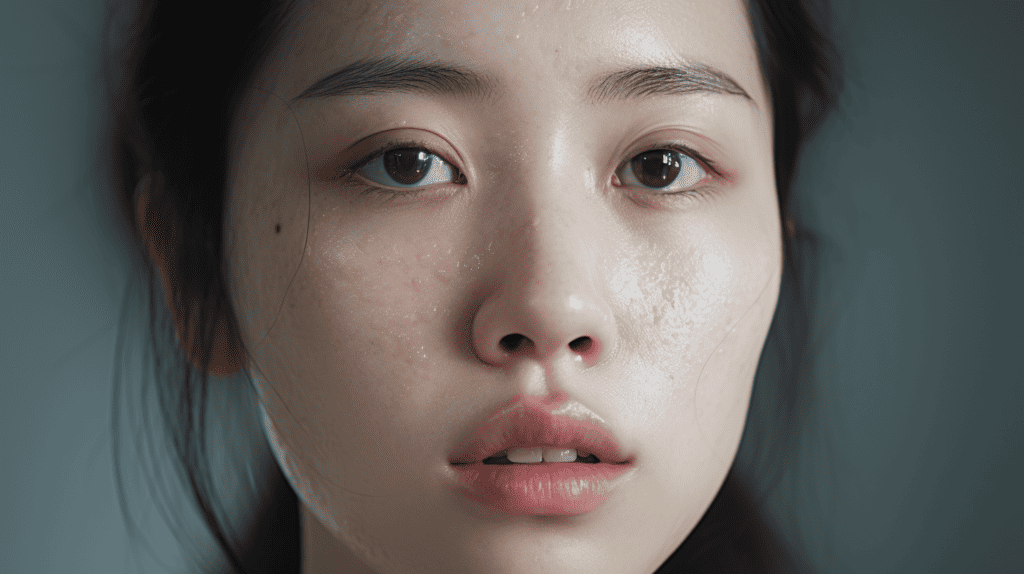
Acne scars are the bane of existence for many people. They are the unsightly reminders of past breakouts that just won’t go away. But what exactly are acne scars, and how do they form?
Acne scars are the result of inflammation caused by acne. When the skin becomes inflamed, the body produces collagen to repair the damage. However, sometimes the body produces too much or too little collagen, leading to the formation of scars.
There are two main types of acne scars: atrophic and hypertrophic. Atrophic scars are depressed scars that form when the body produces too little collagen. Hypertrophic scars, on the other hand, are raised scars that form when the body produces too much collagen.
Acne scars can be further classified into several subtypes based on their appearance. These include:
- Ice pick scars: deep, narrow scars that look like small puncture marks
- Boxcar scars: broad, shallow depressions with sharply defined edges
- Rolling scars: broad depressions with sloping edges
- Keloid scars: raised, thick scars that extend beyond the original site of the acne
Acne scars can have a significant impact on a person’s appearance and self-esteem. Fortunately, there are many treatment options available to reduce the appearance of acne scars.
Some of the most common treatments for acne scars include:
- Chemical peels: a solution is applied to the skin to remove the top layer, revealing smoother skin underneath
- Microdermabrasion: a device is used to exfoliate the skin and remove dead skin cells
- Laser resurfacing: a laser is used to remove the top layer of skin, promoting collagen production and smoothing out scars
- Dermal fillers: injectable fillers are used to fill in depressed scars and create a smoother appearance
In conclusion, acne scars are a common problem that can have a significant impact on a person’s appearance and self-esteem. However, there are many treatment options available to reduce the appearance of acne scars. Whether you opt for chemical peels, microdermabrasion, laser resurfacing, or dermal fillers, there is a solution out there that can help you achieve smoother, clearer skin.
The Uninvited Guests: Types of Acne Scars

Acne scars are like the uninvited guests that never leave. They are a constant reminder of the past and can be a source of insecurity for many. But just like guests, not all acne scars are the same. There are different types of acne scars, each with its own unique characteristics and treatment options.
Ice Pick Scars
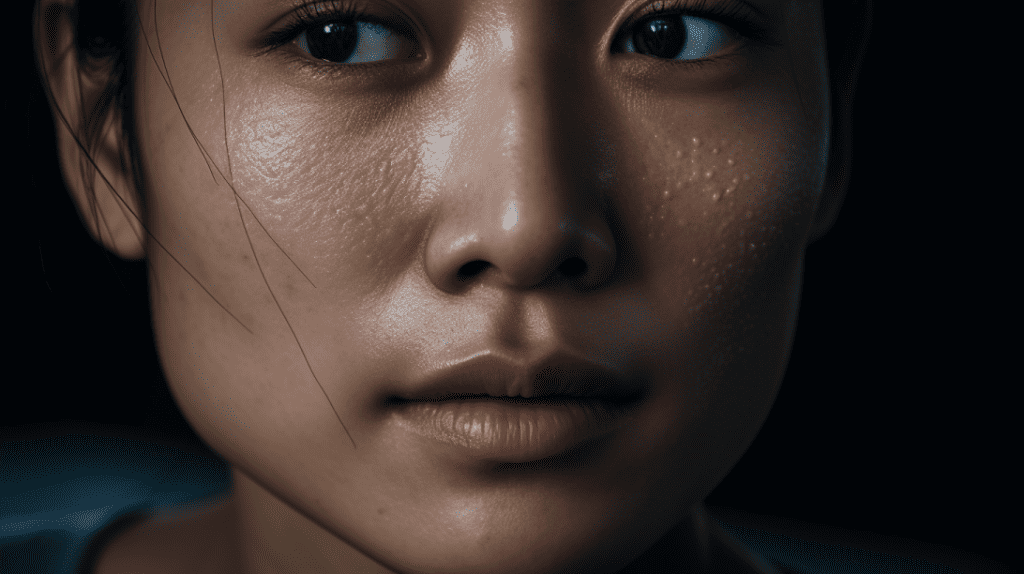
Ice pick scars are narrow, deep, and V-shaped scars that look like they were made by an ice pick (hence the name). They are usually less than 2mm wide but can go as deep as 2mm into the skin. These scars are caused by the loss of collagen in the skin, which can occur when the body tries to heal a pimple or cyst.
Rolling Scars
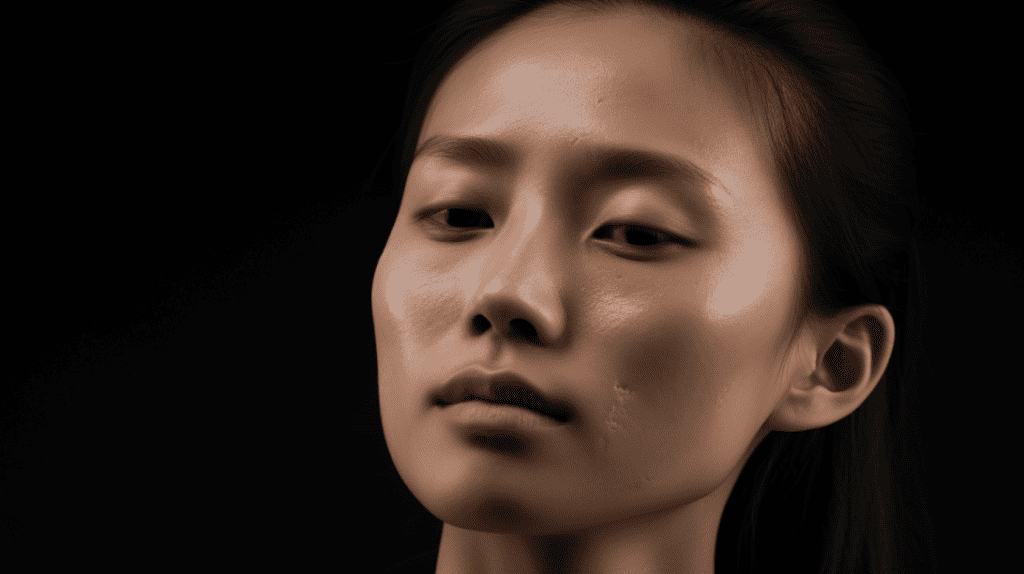
Rolling scars are broad depressions with rounded edges that give the skin a rolling or wave-like appearance. They are caused by damage to the collagen fibers beneath the skin, which can cause the skin to lose its elasticity and become tethered to the underlying tissue.
Boxcar Scars
Boxcar scars are round or oval depressions with steep vertical sides. They are similar to chickenpox scars and are caused by the destruction of collagen in the skin. These scars can be shallow or deep and are usually wider than ice pick scars.
Hypertrophic Scars
Hypertrophic scars are raised, thick scars that are caused by an overproduction of collagen during the healing process. They are most commonly found on the chest, back, and shoulders and can be itchy and painful.
Acne Scars and Marks
Acne scars and marks are the result of inflammation caused by acne. They can be red, brown, or purple and are usually flat or slightly raised. These scars and marks can fade over time, but they can also be permanent if left untreated.
Red Marks
Red marks are the result of post-inflammatory erythema (PIE), which is a type of inflammation that occurs after a pimple or cyst has healed. These marks are usually flat and red and can take months to fade.
In conclusion, acne scars are like the uninvited guests that never leave, but with the right treatment, they can be minimized or even eliminated. It’s important to understand the different types of acne scars and their characteristics to choose the best treatment option.
Why Me? Causes of Acne Scars
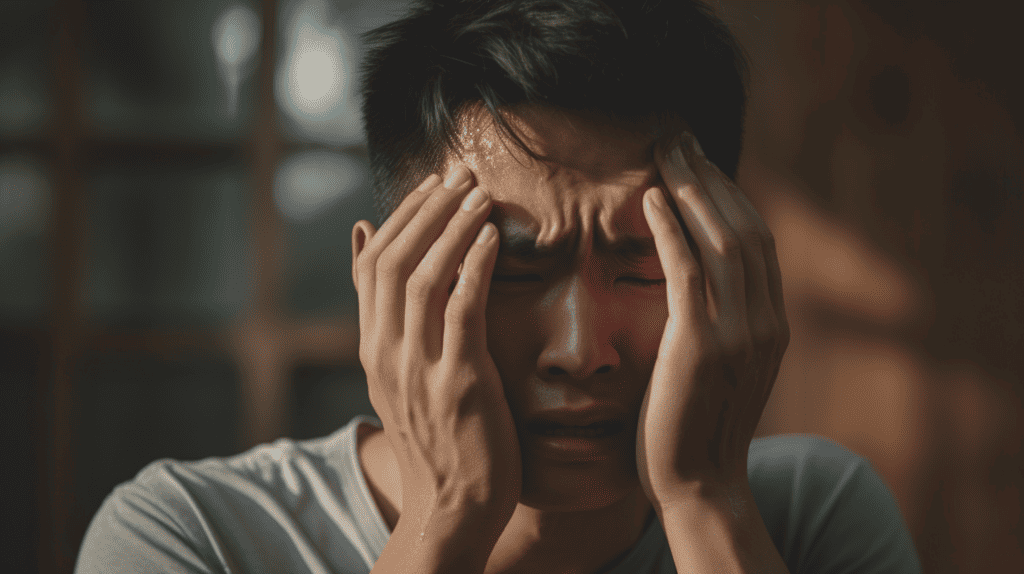
Acne scars are a common skin condition that affects many people, especially teenagers. But why do some people get acne scars while others do not? Let’s take a look at some of the common causes of acne scars.
Acne
Acne is the primary cause of acne scars. When the hair follicles on the skin become clogged with oil and dead skin cells, acne forms. Acne can be caused by a variety of factors, including hormonal changes, stress, and genetics.
Inflammation
Inflamed acne, such as cystic acne, is more likely to cause scarring than non-inflamed acne like whiteheads. The inflammation caused by acne damages the skin and can lead to the formation of scars.
Collagen
Collagen is a protein that gives the skin its structure and elasticity. When acne damages the skin, it can also damage the collagen fibers, leading to the formation of scars.
Severe Acne
Severe acne, such as cystic acne, is more likely to cause scarring than mild or moderate acne. The more severe the acne, the more likely it is to cause scarring.
Stress
Stress can also contribute to the formation of acne scars. When the body is under stress, it releases hormones that can increase oil production and inflammation, leading to the formation of acne and scars.
So, if you’re wondering why you have acne scars, it’s likely due to a combination of these factors. Don’t worry though, there are many treatments available to help reduce the appearance of acne scars.
The Battle Against Acne Scars: Treatments in Singapore
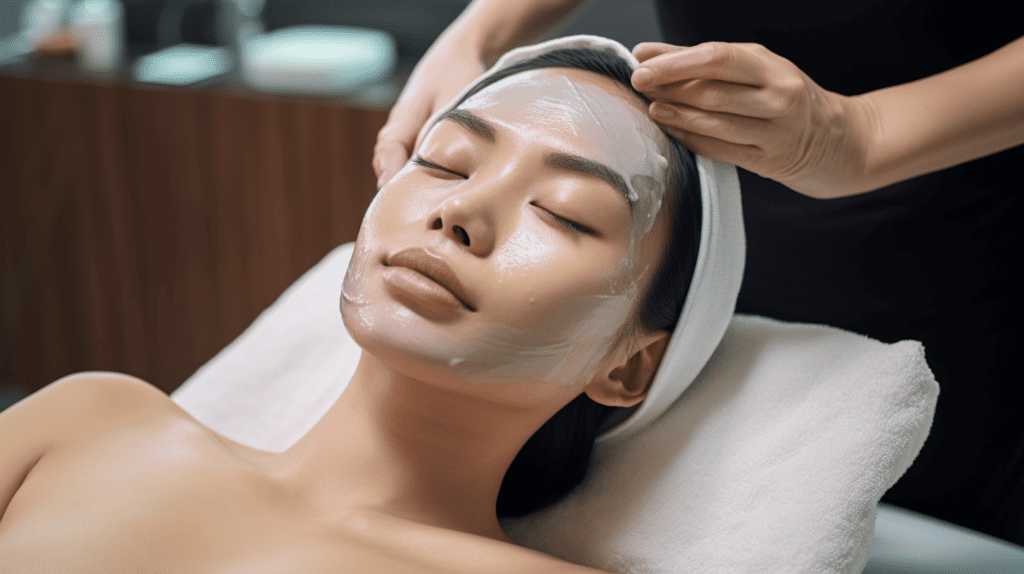
Acne scars can be a real pain in the face. They can make you feel self-conscious, and they can be difficult to get rid of. Fortunately, there are many treatments available in Singapore that can help you fight back against those pesky scars.
One of the most popular treatments for acne scars is laser therapy. Lasers can be used to resurface the skin and reduce the appearance of scars. There are many different types of lasers available, including CO2 lasers, fractional lasers, and edge fractional CO2 lasers. Each type of laser has its own benefits and drawbacks, so it’s important to talk to a dermatologist to determine which one is right for you.
Chemical peels are another popular treatment for acne scars. They work by removing the top layer of skin, which can help reduce the appearance of scars. There are many different types of chemical peels available, including TCA cross and the Edge Fractional CO2 laser. Again, it’s important to talk to a dermatologist to determine which one is right for you.
In addition to laser therapy and chemical peels, there are many other treatments available for acne scars. These include subcision, dermal fillers, microneedling, and radiofrequency microneedling. Each of these treatments works in a different way to help reduce the appearance of scars.
Of course, there are also many home remedies and over-the-counter treatments available for acne scars. These include acne creams, facials, and even punch excision. While these treatments may be less effective than professional treatments, they can still be a good option for some people.
Overall, there are many different treatments available for acne scars in Singapore. Whether you choose laser therapy, chemical peels, or another treatment, it’s important to work with a dermatologist to determine which option is right for you. With the right treatment plan, you can fight back against those pesky scars and feel confident in your own skin once again.
The Pain Game: What to Expect During Treatment
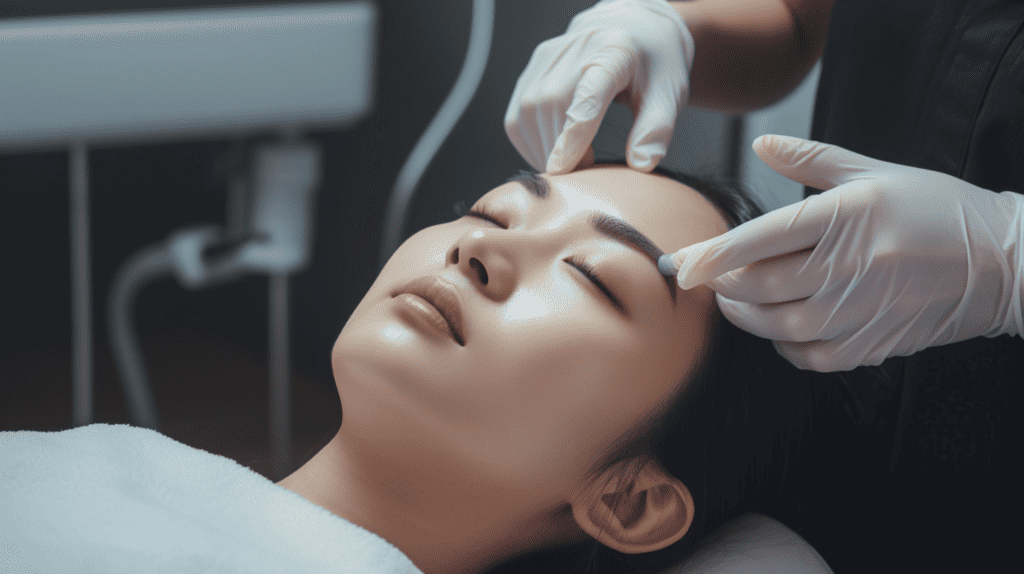
Acne scar treatment in Singapore can be a painful process, but it’s worth it to achieve clear and smooth skin. Here’s what to expect during treatment:
Pain
Let’s be real, no one enjoys pain, but the pain of acne scar treatment can be managed. The level of pain depends on the type of treatment, but some treatments may cause discomfort or a stinging sensation. Don’t worry though, the pain is usually short-lived and can be managed with numbing cream or painkillers.
Sessions
Acne scar treatment usually requires multiple sessions to achieve the desired results. The number of sessions required depends on the severity of the scars and the type of treatment. For mild to moderate scars, 2-3 sessions may be enough, but for more severe scars, 4-6 sessions may be required.
Downtime
Some acne scar treatments may require downtime, meaning you’ll need to take a break from your daily routine. This downtime can range from a few days to a week or more, depending on the type of treatment. During this time, you may experience redness, swelling, or scabbing, but this is normal and part of the healing process.
Discomfort
Acne scar treatment can be uncomfortable, but it’s important to remember that it’s temporary. Some treatments may cause itching or a burning sensation, but this discomfort usually subsides within a few hours. If you experience any discomfort during treatment, don’t hesitate to speak up and let your doctor know.
In conclusion, acne scar treatment in Singapore may not be the most comfortable experience, but it’s worth it to achieve clear and smooth skin. Remember to communicate with your doctor about any pain or discomfort you may experience during treatment.
Show Me the Money: Costs of Acne Scar Treatments in Singapore
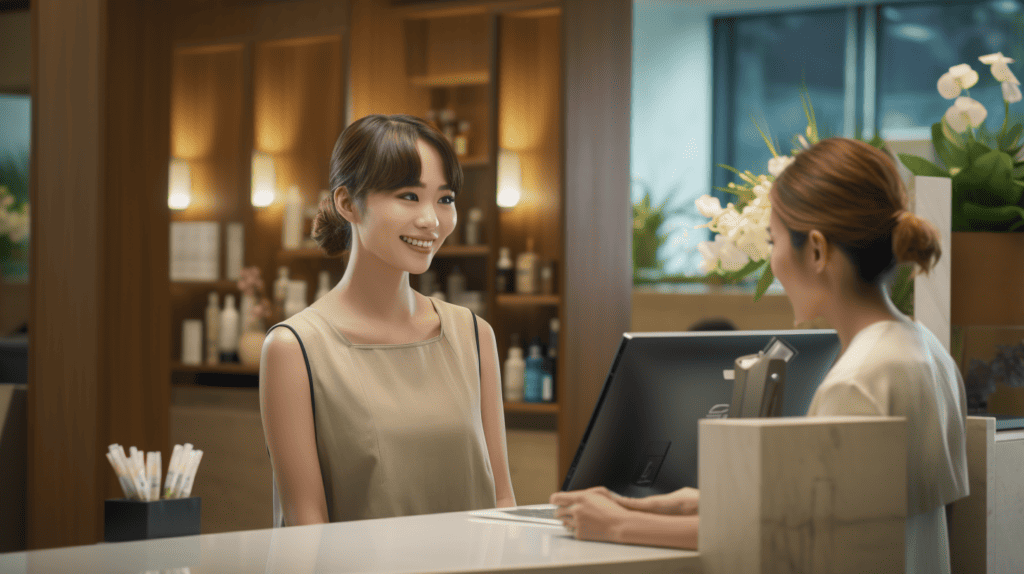
Acne scars can be a real pain in the wallet. But how much does it really cost to get rid of them in Singapore? Let’s take a look at some of the options available.
The Clifford Clinic
The Clifford Clinic offers a variety of acne scar treatments, including fractional CO2 laser and subcision. Prices for these treatments range from $500 to $2,500 per session. However, they also offer package deals for multiple sessions, which can bring the cost down.
National Skin Centre
The National Skin Centre offers a range of acne scar treatments, including chemical peels, microdermabrasion, and laser resurfacing. Prices for these treatments start at $80 and can go up to $3,000 per session.
Niks Maple Clinic
Niks Maple Clinic offers a range of acne scar treatments, including dermal fillers, subcision, and laser resurfacing. Prices for these treatments range from $400 to $2,000 per session.
Apax Medical Aesthetic Clinic
Apax Medical Aesthetic Clinic offers a variety of acne scar treatments, including fractional CO2 laser, subcision, and dermal fillers. Prices for these treatments range from $500 to $3,000 per session.
Acne Free Program
The Acne Free Program is a comprehensive program that includes a range of treatments, including chemical peels, microdermabrasion, and laser resurfacing. Prices for this program start at $1,200 and can go up to $5,000.
Overall, the cost of acne scar treatments in Singapore can vary widely depending on the type of treatment and the severity of the scarring. However, there are many options available at different price points, so there’s no need to break the bank to achieve clear skin.
All About Aftercare: Maintaining Your Skin Post-Treatment
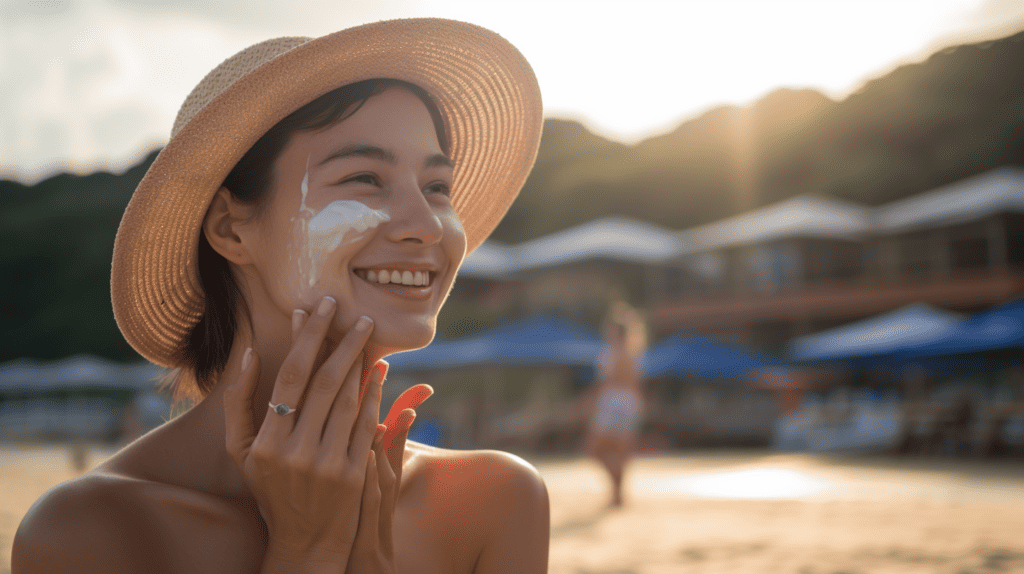
Congratulations! You’ve successfully undergone acne scar treatment in Singapore, and now you’re left with smooth, glowing skin. But wait, there’s more! Maintaining your skin post-treatment is just as important as the treatment itself. Here are some tips and tricks to keep your skin looking its best:
Keep Your Skin Clean
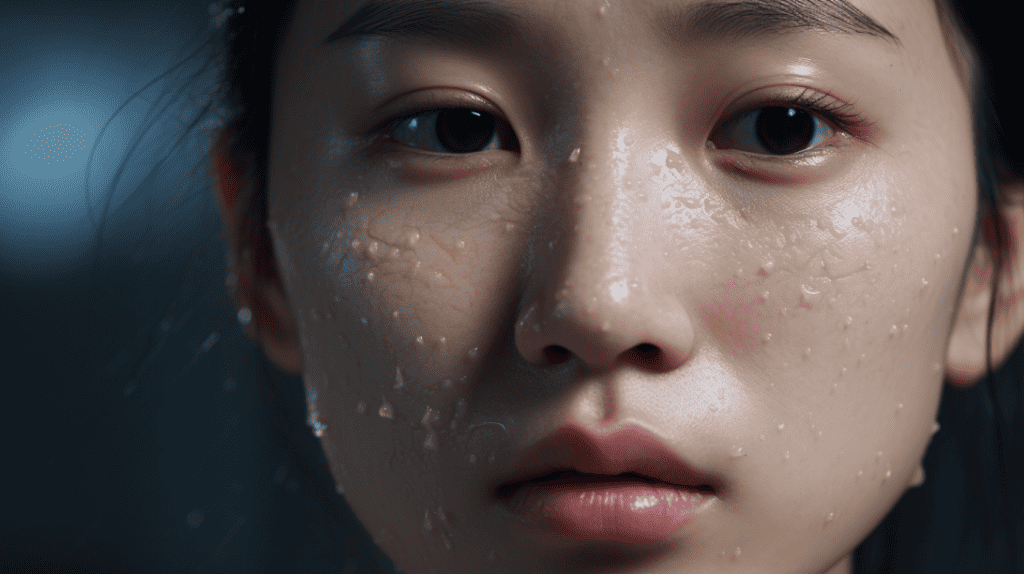
It’s important to keep your skin clean to prevent any infections or breakouts. Use a gentle cleanser twice daily to remove dirt and oil from your skin. If your skin is dry, use a moisturizer to keep it hydrated.
Protect Your Skin from the Sun
Exposure to the sun can cause damage to your skin, especially after treatment. Make sure to wear sunscreen with at least SPF 30 every day, even if it’s cloudy outside. Wear a hat and sunglasses to protect your face from the sun’s harmful rays.
Exfoliate Regularly
Exfoliating your skin once or twice a week can help remove dead skin cells and promote skin rejuvenation. Be careful not to over-exfoliate, as this can damage your skin. Use a gentle exfoliator and follow the instructions carefully.
Watch Your Diet
Eating a healthy diet can help improve your skin’s texture and pore size. Include plenty of fruits and vegetables in your diet, and avoid processed foods. Drinking plenty of water can also help keep your skin hydrated.
Visit a Skin Clinic
Regular visits to a skin clinic can help keep your skin looking its best. A dermatologist can recommend treatments and products that are best suited for your skin type. They can also help address any concerns you may have, such as fine lines or collagen fibres.
Remember, maintaining your skin post-treatment is just as important as the treatment itself. By following these tips and tricks, you can keep your skin looking healthy and glowing.
Prevention is Better than Cure: Tips to Avoid Acne Scars
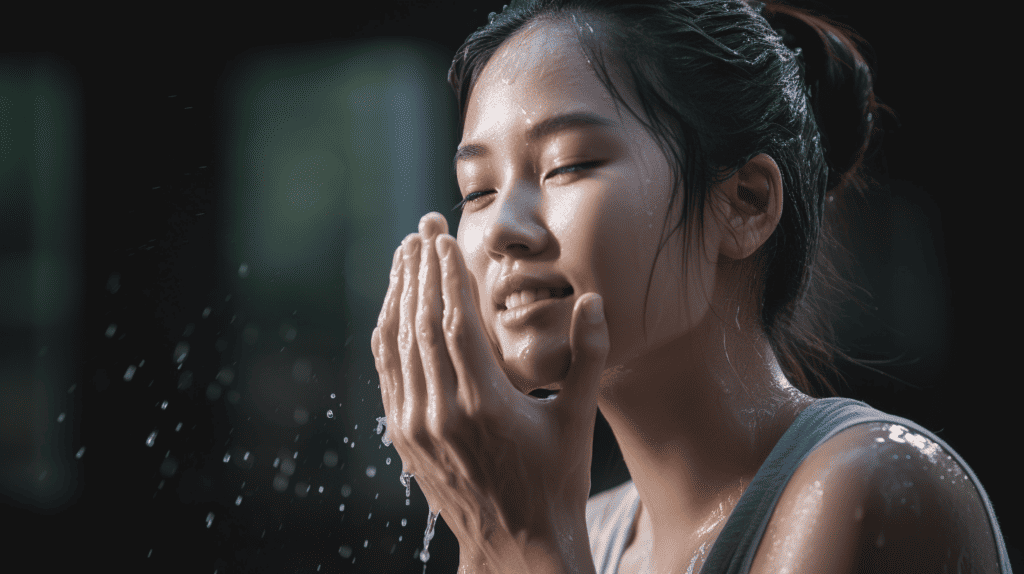
Acne scars can be a real nightmare, but the good news is that they can be prevented with some simple tips. As the saying goes, prevention is better than cure, and that definitely applies to acne scars. Here are some tips to help avoid those pesky scars:
- Get treatment ASAP: Treating acne is something everyone should do, but the key is to do it sooner rather than later. The longer you wait, the more likely you are to develop scars. So, if you have acne, don’t wait until it gets worse before seeking treatment. Visit an acne clinic or dermatologist as soon as possible.
- Avoid picking or squeezing pimples: It can be tempting to pop that pimple, but resist the urge. Picking or squeezing pimples can cause more inflammation and damage to the skin, leading to scarring. Instead, use topical medication or acne cream to help control the acne.
- Protect your skin from the sun: Sun exposure can worsen acne and increase the risk of scarring. Always wear sunscreen with at least SPF 30 when going outside, even on cloudy days. Dermatologists recommend wearing a sunscreen that offers UVA/UVB protection and is water-resistant.
- Avoid harsh scrubs and exfoliants: Scrubbing your skin too hard can cause more irritation and inflammation, leading to scarring. Stick to gentle exfoliation methods, go slow, and be sure to rehydrate your skin afterward.
- Consider oral medication: In some cases, oral medication may be necessary to control acne and prevent scarring. Talk to a dermatologist to see if this option is right for you.
Remember, everyone’s skin is different, so what works for one person may not work for another. It’s important to consult a dermatologist or acne clinic for personalized advice and treatment. By following these tips, you can help prevent acne scars and keep your skin looking healthy and clear.
Frequently Asked Questions
Why do acne scars exist in Singapore?
Acne scars are a result of the skin’s natural response to acne inflammation. Unfortunately, Singapore is not immune to acne, and many people suffer from it. When acne lesions heal, they can leave behind scars, which can be frustrating and difficult to get rid of.
Can I use leeches to remove acne scars in Singapore?
While leeches have been used for medicinal purposes for centuries, there is no scientific evidence to suggest that they can effectively treat acne scars. Plus, the thought of having leeches crawling on your skin is enough to make anyone’s skin crawl.
What’s the worst acne scar treatment in Singapore?
There is no one-size-fits-all answer to this question, as everyone’s skin is different. However, some treatments may be more painful, expensive, or ineffective than others. It’s important to do your research and consult with a dermatologist before undergoing any acne scar treatment in Singapore.
Do I have to sell my kidney to afford acne scar treatment in Singapore?
No, you do not have to sell any organs to afford acne scar treatment in Singapore. While some treatments may be expensive, there are affordable options available. It’s important to prioritize your budget and choose a treatment that works for you.
Can I use magic to get rid of acne scars in Singapore?
Unfortunately, there is no magic solution to getting rid of acne scars. While there are many treatments available, they all require time, patience, and consistent effort. Don’t fall for any scams promising quick and easy results.
Is there a way to prevent acne scars in Singapore?
Prevention is always better than cure. To prevent acne scars in Singapore, it’s important to treat your acne as soon as possible. Avoid picking or popping pimples, and use sunscreen to protect your skin from further damage. If you do develop acne scars, consult with a dermatologist to find the best treatment for your skin type.




